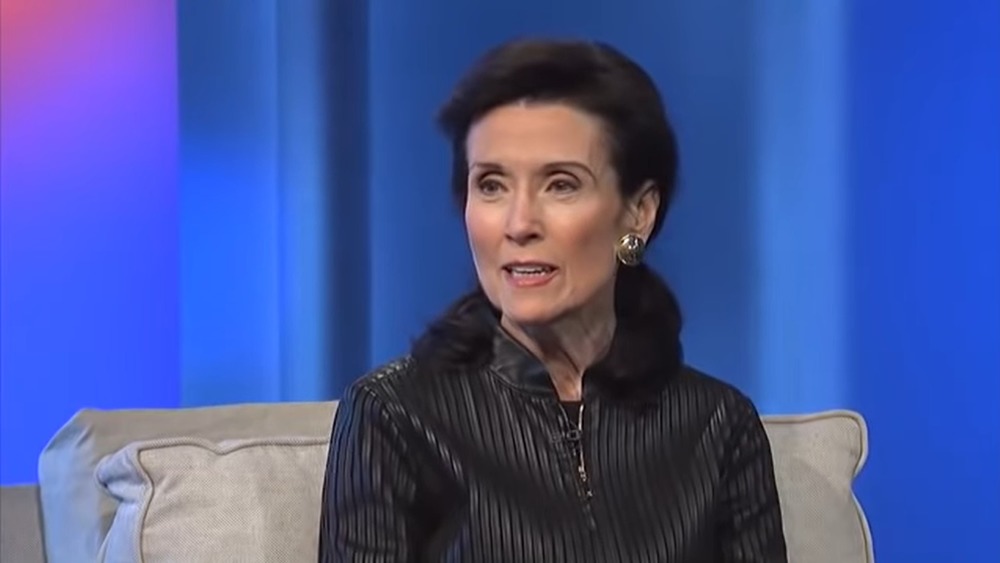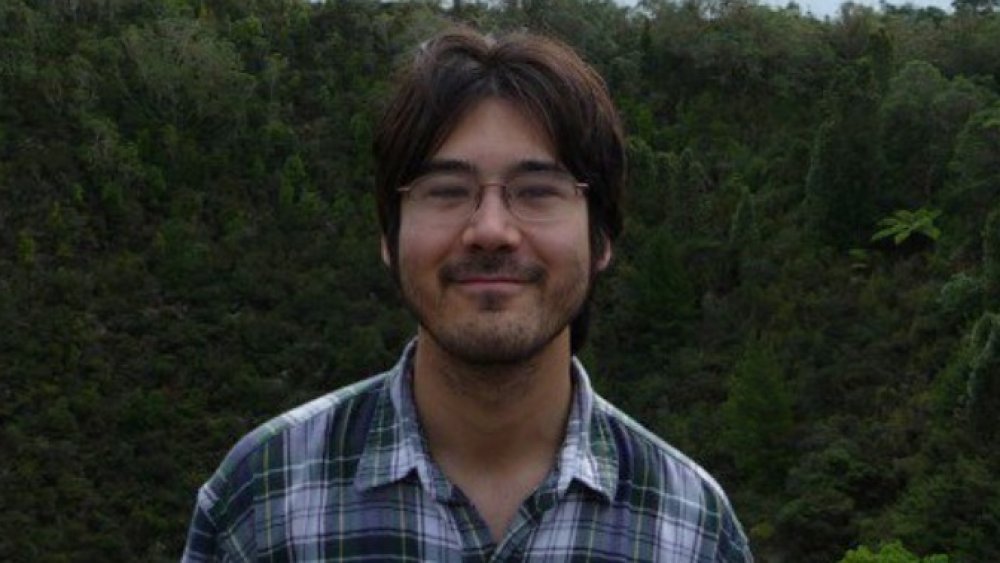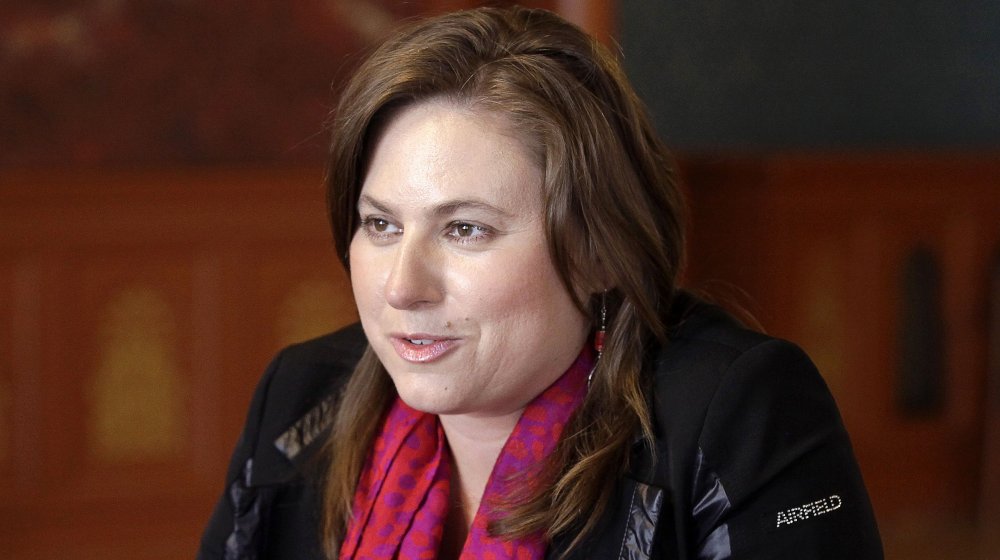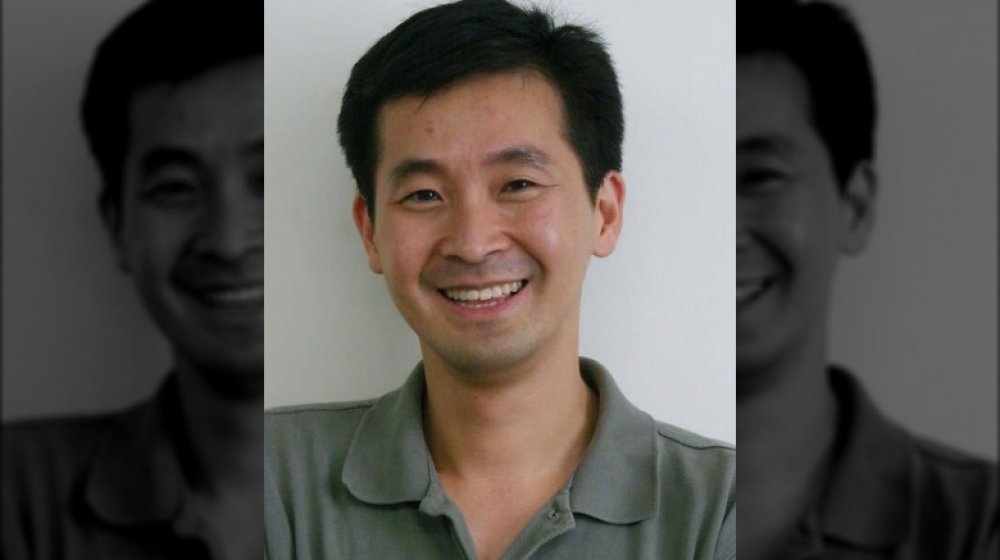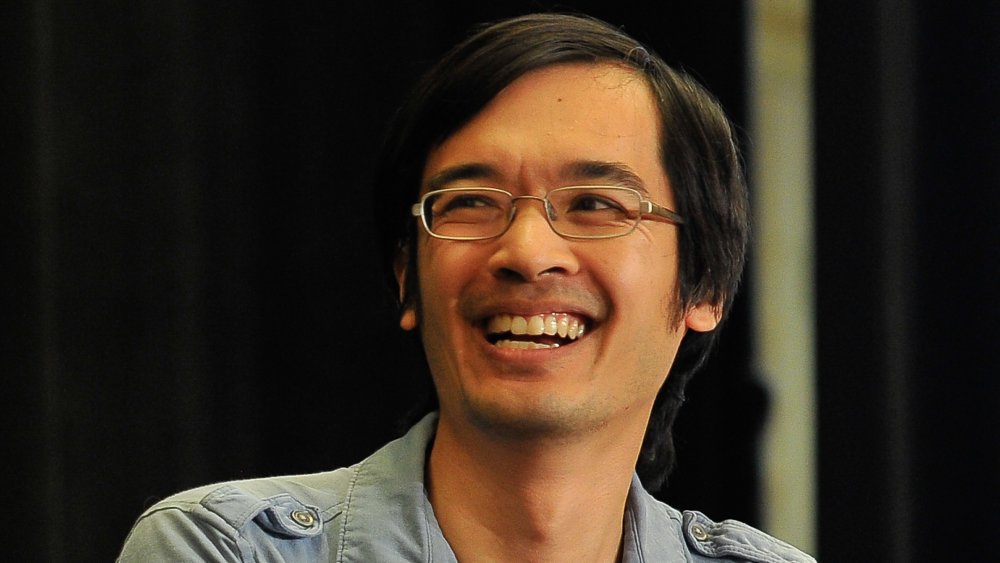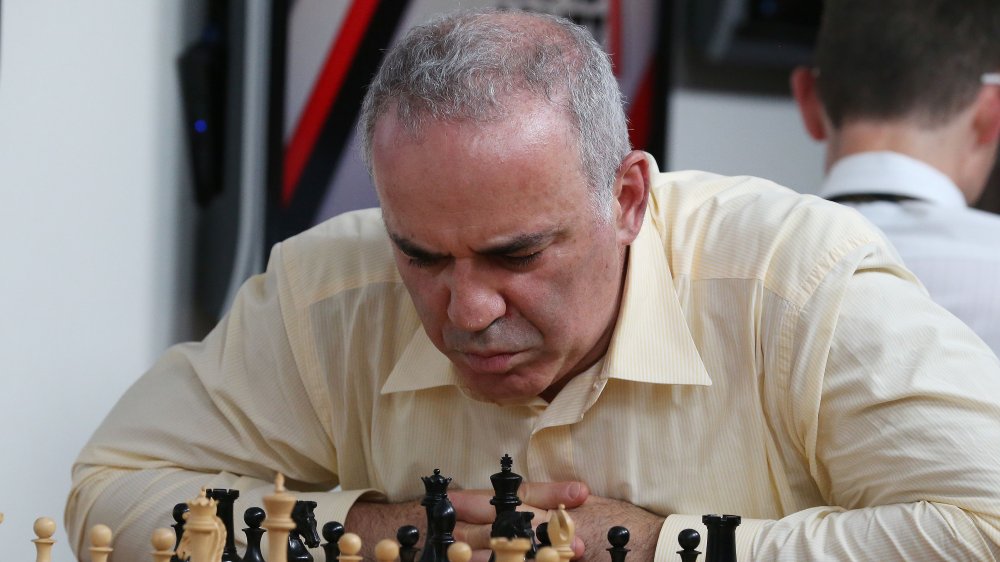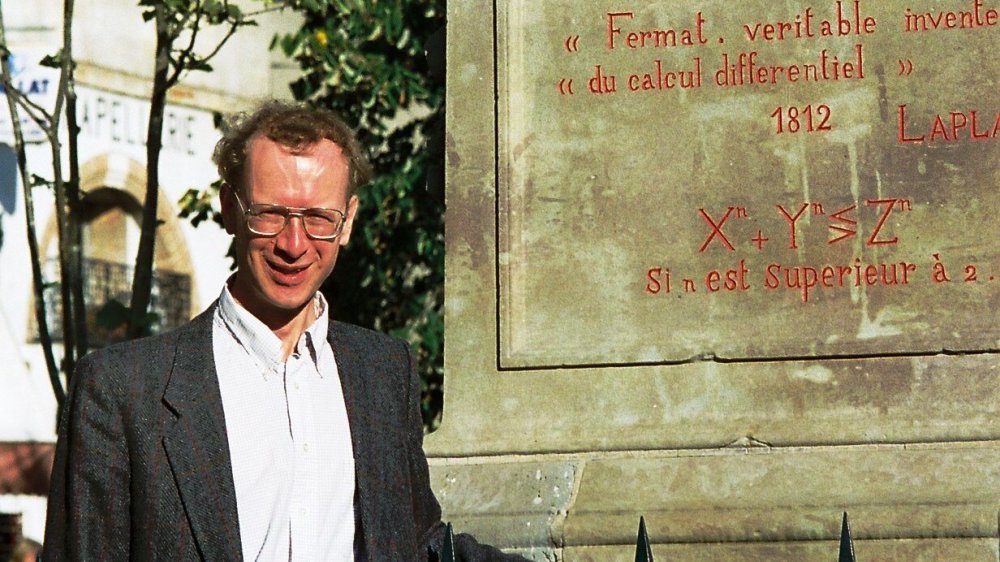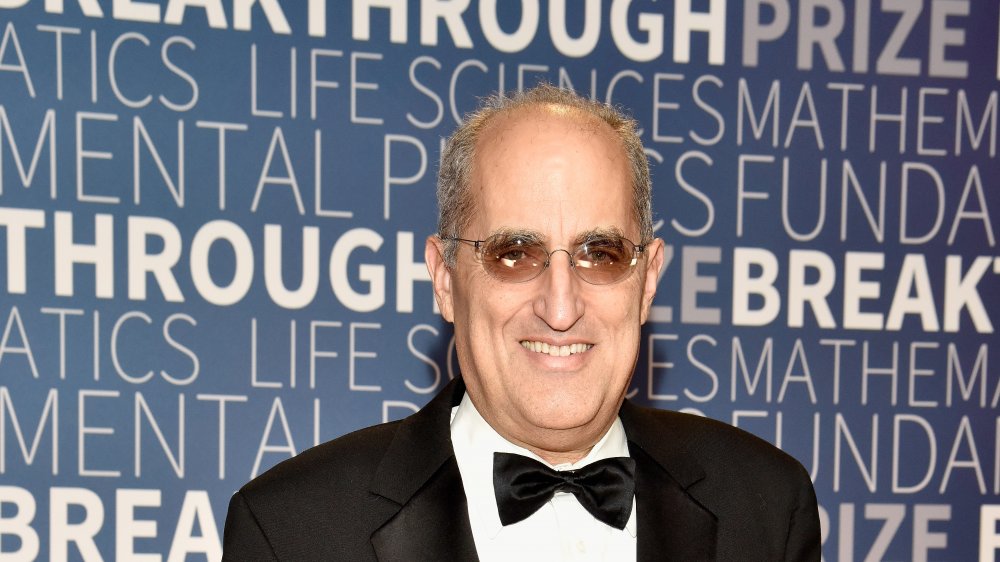These Are The Smartest Living People In The World Right Now
The world as we know it was built upon the contributions of bygone geniuses, such as Isaac Newton, Albert Einstein, and Steve Urkel. Without them, we'd be severely lacking in some pretty fundamental areas of knowledge, like gravity, physics, or how to properly wear suspenders. While these monumental figures are no longer around to remind us just how puny our little brains are, we can take heart in knowing there are plenty of living, breathing cases of genius in the world today.
They walk among us, and while they eat the same pizza and drink the same lattes as the average Joe, something different is going on inside their heads. To the most brilliant people alive, vast calculations and staggering insights that might change the course of humanity are all in a day's work. But who are these people who can stand alongside the likes of da Vinci, Tesla, and Steve Jobs? Well, put your thinking cap on and try your best to look intelligent as we take a look at the smartest people living in the world right now.
This woman is a true Savant
It figures that someone whose last name literally means "a learned person, especially a distinguished scientist" would be one of the world's brightest. Enter Marilyn vos Savant, who, for the record, didn't change her name — that's her mother's maiden name, according to Jezebel. Vos Savant has one of the world's highest IQs (228), and she's often been called the smartest person in the world. She even held the Guinness World Record for smarts, per the Financial Times, until they did away with the record in 1990. After all, it doesn't take a genius to realize that claiming one person is the single smartest person in the world is a pretty dumb thing to do.
Interestingly enough, while Savant is more than capable of holding her own in intellectual circles, she's opted to follow a less traditional path than most verified geniuses. She has run the popular "Ask Marilyn" column for Parade for more than 30 years. Between that and the fact that she's married to the inventor of the artificial heart, she's probably the best person in the world to ask for love advice — or just about any other kind. The questions she answers in her column are often deeply philosophical ("Is it better to be lucky or skillful?") or complex puzzles, like the infamous "Two Goats and Three Doors Question."
Chris Hirata is one of the smartest living people on the planet
Chris Hirata could've had a starring role in Baby Geniuses. By the time he was a preteen, he had a feature-length profile in the Chicago Tribune detailing his virtuosic abilities. According to the piece, as a curious toddler, "Chris entertained himself by estimating the cost of the grocery bill as they wound their way through the supermarket." We're not talking a babbled couple of numbers followed by a dull gaze. This brilliant little kid would "price each item by weight, quantity, and any discount that might be given." He was even taking the sales tax into consideration.
By the time he was in first grade, he was ready for algebra, and by the time he was in sixth grade, he was taking college-level physics and calculus. By high school? He was helping NASA figure out how to colonize Mars. Fast forward to now, and he's a card-carrying astrophysicist with a Ph.D. from Princeton and a verified IQ of 225. Plus, he recently won the 2018 New Horizons in Physics Prize for "fundamental contributions to understanding the physics of early galaxy formation and to sharpening and applying the most powerful tools of precision cosmology." And he's also a normal guy with a wife and kid. In his acceptance remarks, he closed with thanking his family for "brightening every day." So far, there are no reports on his son's supermarket estimation abilities.
Judit Polgar pulverized the competition
Judit Polgar has an IQ of 170, and she and her sisters were homeschooled by their father in an experimental curriculum that used chess as the central foundation. Compared to learning about Christopher Columbus, that doesn't sound too bad, and it worked out great for Judit, who at age 15 became the youngest Grandmaster ever at the time. She held the rank of top female player for 25 years before retiring, and she's beaten many of modern chess's best players, including fellow genius Garry Kasparov when she was 24. The Guardian reports that Kasparov once called her a "circus puppet" and asserted that "women chess players should stick to having children." Needless to say, her stellar career helped to break down both age and gender stereotypes.
Now, she's uniformly considered the greatest female chess player of all time, and she coaches the men's national team in her home country of Hungary. Her success in opening doors for female players and promoting chess education won her Hungary's highest honor, the Order of Saint Stephen, which she was awarded for "winning glory for Hungary through possessing a power of shaping the community and the nation."
Kim Ung-yong was the original child prodigy
Kim Ung-yong is a classic genius case of starting ... "yong." Just how young was he when he began his reign of mental supremacy? Well, it's been reported that he could speak four languages by his fifth birthday, and that he was studying differential calculus by age three. Well, that's a decent start.
Born in 1962, Ung-yong was certainly not the first child prodigy, but he was one of the first to gain wide recognition. He once held the Guinness World Record for IQ at 210, and he was a guest student in physics at Hanyang University by the time he was three. Despite his unbelievable abilities, Ung-yong stressed that a high IQ doesn't bring happiness, and that there are other, more important things in life. After being invited to America by NASA at age eight, he worked at the space organization for ten years before returning to Korea, as opposed to pursuing more illustrious academic opportunities abroad. True to his ethos of valuing elements of life more than just pure intelligence and academic achievement, he chose a provincial college to earn his Ph.D. in civil engineering, rather than attend Korea's most prestigious institution, and he later went on to become an adjunct faculty member at Chungbuk National University.
Terence Tao is 'way' too smart for us
The word "tao" means the "absolute principle underlying the universe" in Chinese or "the way." And Terence Tao's way is that of accelerated learning and doing his best to figure out those absolute principles through mathematics. Tao started way young, at age two, when he began "teaching five-year-old children to spell and to add numbers," according to the University of St. Andrews School of Mathematics. When asked how he'd learned to do this at an age where most of us can hardly string words together, he replied that he'd learned it from "watching Sesame Street."
By age seven, Tao was reading calculus books for hours a day and not because his parents forced him to. At ten, he became the youngest ever gold medalist in the International Mathematical Olympiads, and by 14, he was taking college courses. A decade later, he would become UCLA's youngest ever full professor, and he'd go on to receive the prestigious Fields Medal in 2006 for his "contributions to partial differential equations, combinatorics, harmonic analysis and additive number theory." Oh yeah, and his IQ is estimated to be around 225 by the Davidson Institute.
Sabrina Gonzalez Pasterski is a genius cited by other geniuses
You won't find any Nobel Prizes or Fields Medals attached to Sabrina Gonzalez Pasterski's name ... yet. But she's still quite young, and among Millennials, she's reached an equally high level of renown, becoming somewhat of a meme. Pasterski is now known as "Physics Girl" and has even been labeled "the Next Einstein." So yeah, no pressure or anything. But how'd she become the poster child for STEM?
Well, she graduated from MIT with a measly 5.00 GPA before getting her Harvard physics Ph.D. with a 4.00. And in 2016, at an age most of us are still figuring out how to show up to class on time, Stephen Hawking was citing her work on electromagnetic memory, according to Newsweek. Among the skills listed on her rather impressive CV are "spotting the elegance within the chaos, design, fabrication, programming, motorcycling, aircraft building" and being "the best Speed Demon player around."
The whole "aircraft building" thing happened when she was 14 and started working on a single-engine plane. She would fly that thing a few years later, helping to lead to the recognition that would earn her standing job offers from the likes of Jeff Bezos.
Garry Kasparov was blessed for chess
Despite the playful spelling of his first name, Garry Kasparov was a lean, mean, chess-winning machine, and some sources say his IQ reaches 190. On top of that, the man rose to prominence as the then youngest-ever, outright world champion, a position he held for three times longer than anyone else.
But Kasparov really became the king of chess when he took on IBM's Deep Blue supercomputer in 1996 and won 4-2, bringing both artificial intelligence and chess into the mainstream in the process. Not to be outdone, IBM revamped Deep Blue the following year, and Kasparov lost, though according to Interesting Engineering, he claimed a certain move by the computer "wasn't at all machine-like, but felt as if it had human aid."
IBM then denied his requests for a rematch, leaving Kasparov unfulfilled in his fight against the inevitable ascension of artificial intelligence. Considering that he later played to a draw against a computer that could calculate 3 million positions per second, he was probably onto something with his accusations. Nevertheless, his feats made him somewhat of a representative of humanity, and in keeping with that role, he now advocates for democracy, human rights and civil liberties.
Andrew Wiles is so smart that he solved an unsolvable problem
You might recognize Andrew Wiles from the Guinness Book of World Records, and we know what you're thinking, but no, he doesn't hold the record for the most weight ever bench pressed. Instead, in 1995, Wiles solved Fermat's Last Theorem, a famously impossible mathematical problem posed in 1630 that had "bedeviled mathematicians for centuries." So yeah, that makes him the person who solved the longest-standing math problem ever.
It was also a hugely personal achievement for Wiles, who'd originally learned of the theorem when he was a ten-year-old boy browsing his local library. He would later state, "I knew from that moment that I would never let it go. I had to solve it." Thankfully, he didn't go all Beautiful Mind on humanity. The mathematical feat helped make him a "living legend" of mathematics and earned him the Abel Prize and handsome sum of 6 million Norwegian kroner (about $715,000 dollars). Famous Mathematicians reports that these days, he's a Royal Society research professor at Oxford University.
Tim Berners-Lee is why you're reading this
Tim Berners-Lee is the wild card of this list. Why? Well, this is the man that invented the World Wide Web, according to the Internet Hall of Fame.
Believe it or not, Berners-Lee's invention was actually inspired by science fiction, notes Time, as he was reading an Arthur C. Clarke story at the age of 9, and that little tale gave him the idea for a world of interconnected computers. And while his intelligence hasn't been quantified, you could make a strong argument he's as qualified a genius as anyone in the world, considering the effect his creation has had on humanity. However, the man has some complicated feelings about his invention. When he first brought the baby World Wide Web into the world on March 12, 1989, he saw it as existing in "a simple, star-spangled, unicorn-sky world" (via QZ). Of course, over the years, people have found plenty of ways to use and abuse the technology, but despite the often graphic nature of his creation, he remains committed to a vision of the web as a boon to humanity.
Nowadays, he's the director of the World Wide Web Consortium (W3C), which is "a Web standards organization founded in 1994 that develops interoperable technologies (specifications, guidelines, software, and tools) to lead the Web to its full potential." Every year on March 12, he writes an open letter on the state of the web and how it can be used for a better world. Though he opened Pandora's box, it's clear he's a good guy and won't be "Berning" for eternity for his creation.
We can all admire the wisdom of Edward Witten
Considered by many to be the most brilliant physicist of his generation, Edward Witten's work "exhibits a unique combination of mathematical power and physics insight, and his contributions have significantly enriched both fields," according to Princeton's Institute for Advanced Study.
Witten began his work focusing on electromagnetism, but he eventually found he got a greater jolt out of studying mathematical physics. Over the course of his career, he has influenced everything from string theory and particle physics to quantum dynamics. Basically, any complex math or physics phrase you can conjure up has been influenced by his work, and he's got the hardware to show for it. He was the first physicist ever to be awarded the prestigious Fields Medal by the International Mathematical Union, and he's also won other notable encomiums such as the Albert Einstein Award, the Isaac Newton Medal, and the Kyoto Prize.
These days, he's a professor of mathematical physics at Princeton and a longstanding member on the board of directors for Americans for Peace Now. When not solving the fundamental questions of our reality, he enjoys tennis, presumably so he can practice calculating vectors in his head while also burning off the calories ingested from all of his prestigious "physics medal-biting" photos.
Christopher Michael Langan might be the smartest living person in the world right now
Christopher Michael Langan is an interesting case. Like everyone on this list, his brain could beat entire armies into submission with its might, but he's the only one to live a life far outside academia. Despite a reported IQ of somewhere between 195 and 210 and claims from others that he may be the smartest person in America, Super Scholar reports that he's spent most of his life working blue collar jobs, including a stint as a bouncer. While there's nothing wrong with that, he's clearly a different breed.
In 1999, ABC News playfully asked him, "If you're so smart, why ain't you rich?" And Langan thoughtfully replied, "Well, because there is no logical connection between being smart and having money. ... [I]f you aren't necessarily focused on getting money in the first place, there's no reason smarts should make money roll to you." So he doesn't care about cash. What does he care about? Well, aside from writing a book about his theories on the nature of reality, Langan runs the Mega Foundation, a resource for those who were bullied and, as a result, struggled due to their gifts, like himself.

